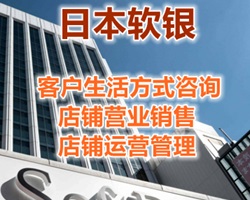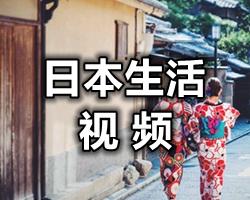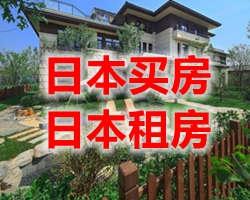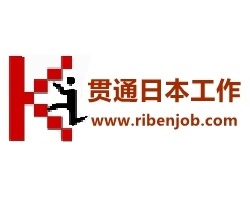地震的破坏是灾难性的,在日本这种地震多发国家,如何应对地震一直是头号难题,日本的建筑师们也在不断探索抗震房屋的设计。最新的抗震创意是用纤维杆编织成的巨大帘幕将建筑物固定在地面上,相比用钢铁加固建筑物,这种“抗震房屋帘幕”既可以在地震时防止建筑物晃动,又能保持建筑物的优雅。
Located on the most active earthquake belt in the world, the island nation of Japan is constantly shaking, or bracing itself for the next big quake. 因为位处世界上最活跃的地震带,日本这个岛国经常发生地震,或者随时准备遭受下一次大地震。 Six years ago a 9.0 magnitude earthquake rocked the country, killing over 20,000, and shifting the main island of Japan by 8 feet. Material damage from the earthquake and ensuing tsunami cost Japan an estimated $300 billion. 六年前,日本发生了9级特大地震,这场地震导致2万多人死亡,将日本本州岛移动了8英尺(2.4米)。这场地震和随之而来的海啸给日本造成了约3000亿美元(合人民币2万亿元)的损失。 With the devastating aftermath of the 2011 quake still lingering in the memory of the country, Japanese architects are continually trialing new ways to weather the inevitable. 2011年地震的灾难性后果至今仍在日本国民的记忆中挥之不去,因此日本的建筑师们不断尝试新方法来应对不可避免的地震。 The latest quake proof innovation involves a curtain of braided carbon fiber rods anchoring a building to the ground almost like a tent with thousands of guy ropes.最新的抗震创意包括用碳纤维杆编织成的巨幕将一座建筑物固定在地面上,就像一个有数千条支索的帐篷。 This design is currently being tested on a concrete office block in Nomi in Japan's Ishikawa prefecture.这项设计目前正在日本石川县熊美市的一栋混凝土办公大楼上进行测试。 The rods extend from a frame on the building's roof and are fastened to the ground at a specific angle. Inside the same rods reinforce the stairwells and windows. 碳纤维杆从建筑屋顶的框架延伸下来,并以特定的角度固定在地面上。在建筑内部也有同样的纤维杆来巩固楼梯井和窗户。 How a curtain can stop an earthquake 帘幕如何减缓地震 The curtain of thermoplastic carbon fiber composite adds a soft, rippling aesthetic to the building. While the rods are flexible, they are also incredibly strong -- strong enough to restrain the force of an earthquake. 这种热塑性碳纤维复合帘幕为建筑物增添了柔和的、涟漪般的美感。虽然纤维杆很柔软,但它们也异常的坚韧,足以抑制地震的震感。 When the ground begins to tremble causing the building to shift left or right, the rods stretch and pull it in the opposite direction, preventing it from shaking. 当地面开始颤抖导致建筑物向左或向右倾斜时,纤维杆会伸展并沿相反的方向拉动,防止建筑物晃动。 "We don't want to fight the earthquake, we want to live with earthquakes, and the design is the best way to find a solution to live with earthquakes," Japanese architect Kengo Kuma tells CNN. 日本建筑师隈研吾告诉CNN:“我们不想和地震抗争,我们想和地震共存,而这一设计是找到共存方案的最佳方式。” This earthquake-proof office is home to Komatsu Seiren, the textile company responsible for developing the rods. The company collaborated with Kengo Kuma's architecture firm to test out the new material. 这栋防震办公楼是日本公司小松精练的所在地,这家纺织公司主要开发棒材。该公司还与隈研吾的建筑公司合作,测试新材料。 The same type of rods will also be attached to the wooden timbers of an ancient storage house next to one of Japan's oldest houses of worship -- the Zenkoji Temple -- in Nangano. 同样类型的纤维杆也将被固定在一间古老的储藏室的木材结构上,该储藏室毗邻长野县的禅宗寺,它是日本最古老的寺庙之一。 Moving with the quake 随地震一起移动 Buildings in Japan are currently retrofitted and reinforced with iron and steel, which, according to Kuma, detracts from their elegance. 目前,日本的建筑物正在用钢铁进行改造和加固,根据隈研吾的说法,这会让建筑物变得不那么优雅。 "I think this is the only one which combines the ... softness and hardness together," says Kuma. "It's the first one in the world." 隈研吾说:“我认为这是唯一将柔软和坚硬结合起来的案例,这是世界上的首例。” For Kuma, earthquakes illustrate just how weak humans are in the face of nature. 对于隈研吾来说,地震恰好说明了人类面对大自然时是多么的脆弱。 "Nature is always much stronger than us. We should respect that kind of strongness and we should move with that kind of movement, and that is the basic idea as a solution," he says. 他说:“自然总是比我们强大得多,我们应该尊重这种强大,我们应该随它的运动而移动,这就是解决方案的基本理念。” 英文来源:CNN翻译:刘子豪(中国日报网爱新闻iNews译者)编审:丹妮 |
日本设计出巨大帘幕 让房屋与地震共存
新闻录入:贯通日本语 责任编辑:贯通日本语
相关文章
日本前幼儿园职员涉嫌偷拍男童并贩卖视频被捕 涉案人数逾500人
牛丼连锁“すき家”母公司年营收破1万亿日元 创日本外食业纪录
前佐贺市议因利用高龄女性认知功能下降骗取4145万日元,被判刑6年
日经平均股价一度上涨超过800点,徘徊在38,400点以上
日本千叶外房海岸发生连续冲浪事故,2人不幸遇难
香川老旧天文台举办最后一次观测会 望远镜将移至博物馆展出
日本和牛出口额创新高
日本福岛地方社区再造计划获成效
日本青少年自杀率下降得益于心理健康项目
日本企业女性管理层比例首次突破15%
外国人劳动政策放宽以应对劳动力短缺
日本推出新育儿支援政策应对少子化
鈴木えみ、夫との寝室別スタイルを告白「いびきがすごくて一緒には絶対寝ない」
倖田來未、ロサンゼルスで大胆スリットから美脚披露
武田真治、コスプレで別人級の変身!
ジェジュン、「ビジュアルショックだが、私はイケメンだとは思わない」
IVEユジン、故郷・大田でKリーグのキックオフセレモニーに挑戦
NewJeansダニエル、ファンへの感謝と不屈の決意を綴る長文メッセージ
(G)I-DLE、グループ名を「i-dle」に変更し新たなスタート
日テレ郡司恭子アナ、『ミヤネ屋』で結婚を生報告
本仮屋ユイカ、「名前で負けた」と感じた芸能人を告白
島袋寛子、透明感あふれる最新ショットが話題「白に白を重ねたような白」
川瀬もえ、愛車シビック公開で話題沸騰「渋い」「カッコよすぎ」
国民民主党、参院選候補者選定で「身体検査不足」への懸念が浮上
工藤静香、長女24歳誕生日に色鮮やかなワンプレート料理を披露












